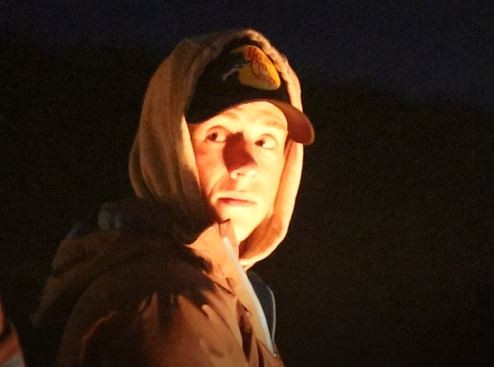Living Intentionally
If you were charged in court with “living intentionally,” would a jury convict?
Thank you for reading this post, don't forget to subscribe!
A friend of mine recalls diving deeply into a book on men and mid-life crises…when he was only 22 years old. He explained, “Dad crashed his marriage, career, and family due to a cascading series of bad mid-life choices, and I’d like to avoid that. Why not start now?”
One key aspect to a man’s mental health is intentionality. I need intentional men around me and one of my newest intentional friends is 35-year-old Jonathan McGinley from Fort Collins, Colorado, who by his own account, suffered the loss of his marriage at a young age, and hit some hard times in his career. Jonathan has four habits that have helped him turn from apathy to intentionality.
#1: Extreme Clarity
If clarity is, by definition, clear, then what is “extreme clarity?” According to Jonathan, this first habit emphasizes the importance of (a) having a vision and (b) removing or ignoring the clutter blurring that vision.
“You have to know who you are,” Jonathan told me, “and what’s important to live intentionally.”
It reminds me of the stories from a blinding Colorado blizzard where a man clings to a rope connected to his cabin door in zero visibility. Now is not the time to empty the snow out of his boots or wipe off the ice sickles irritating his frozen beard; if he doesn’t focus with extreme clarity through all the snow clutter, none of that will matter.
Clarity is seeing through life’s clutter and focusing on the critically important. Extreme clarity is studying before life crises and learning from past failures as a way of “failing well.”
#2: Kingdom Focus
Many purposes are important, but not all purposes are created equal. The man pulling himself on a rope through a snow blizzard wants to save his life but his greater purpose is to save his wife and children and those who depend on him; if he doesn’t survive, they might not either.
Jonathan says that the intentional man has focused on what people of faith call “The kingdom of God.” That might sound religious to some, but the focus is external from us and building our lives. It asks the question, “How can I play a role in things bigger than my life and things that count not only in this life, but forever?”
#3: Consistent Action
Again, what I especially like about Jonathan is his precision; action is a good start but a lousy finish, because the intentional man needs to be about consistent action. The snow blizzard-bound-dad has to pace himself and manage blistered fingers, hypoxia, hypothermia, and more.
Another friend of mine once shared that in order to complete his recovery from alcoholism, he found a commuting route that didn’t include liquor billboards, which could trigger him. Extreme, you say? You bet, and when you’re that desperate for a new normal, you’re not just about taking action today, Tuesday, and Friday, but you’re about taking consistent action every day. You’re taking consistent action in order to rig your success, like rigging a slot machine to roll triple 7’s every time. As much as possible, eliminate chance and guarantee the outcome.
“You can’t just settle for good intentions,” Jonathan says, “you actually have to take consistent action for it to matter.”
#4: Daily Congruency
Finally, Jonathan says that intentional living must include daily congruency, where your thoughts, words, and deeds are evaluated for whether they are aligned with the man that you want to become. I might call this an audit where, like a financial statement, you’re comparing this financial statement as congruent with that statement.
I might add that it is not only important to audit oneself on a daily basis, but also weekly, monthly, quarterly, and annual. And, we can go the other way too. If you’re auditing your stated values on an hourly basis, then you’re prepared with the right answer when, for example, office friends go out for lunch and you get the meal you know comports with your weight management goals.
If you were described to your girlfriend, wife, employer, co-worker, or pastor as a man who lives intentionally, would they agree? Jonathan McGinley is part of a new movement of young men learning to jettison passivity and embrace intentionality. To learn more about his work, visit IntentionalMan.co.





